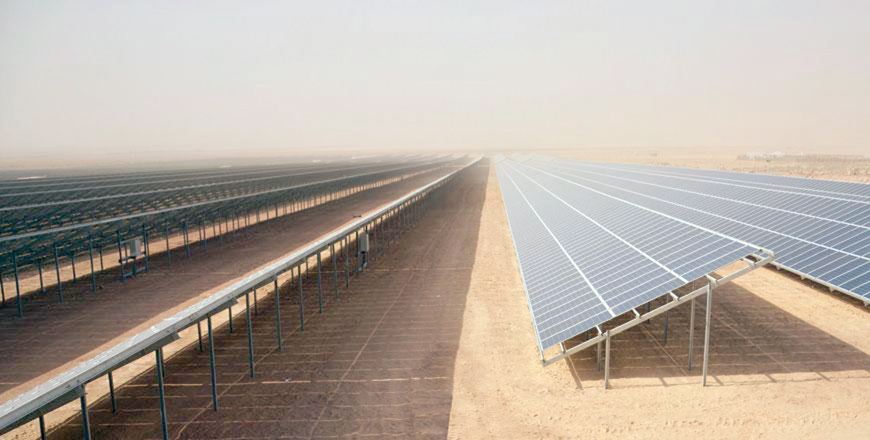AMMAN — The Ministry of Energy and Mineral Resources on Tuesday decided to freeze renewable energy tenders until the National Electric Power Company (NEPCO) conducts a comprehensive study that shows the capacity of the grid to absorb the output of these projects, according to the Ministry of Energy and Mineral Resources.
In a statement, the ministry’s spokesperson, Mashhour Abu Eid, said that the Cabinet decided to freeze all tenders for electricity-generating projects through renewable or traditional resources, temporarily, with two exceptions.
The ministry official acknowledged that the national grid has experienced “technical challenges” related to its capacity to cope with the increasing production of power via unconventional sources.
An expert and former investor in the field, Jamal Tahat, told The Jordan Times that the halt might be very necessary to allow upgrading the grid, because individual and corporate producers of renewable energy have had their applications to connect to the grid turned down for the same technical reasons cited in the ministry’s statement.
The applications are filed with electricity distributors: three private companies in the central, northern and southern regions.
Large consumers, like factories, banks, hospitals and others, have had to halt their plans due to this situation, he explained.
Authorities should compel these distributors to carry out a makeover of the grid, so that individual would-be producers can carry on with their plans to lower the energy cost, which is vital for a country that imports 98 per cent of its energy needs and faces regional competition in various fields.
Under the Renewable Energy and Energy Consumption Rationalisation Law for the year 2012, households and establishments are allowed to produce their own electricity through the wheeling system, which includes setting up far-away stations and feeding the grid, while securing their needs from the regular grid somewhere else. If the consumption is less than the production, the electricity distributor will buy the excess.
The other system is the net metering, under which producers can install solar panels within a facility, like on rooftops of their house, factory, hospital... etc, and the electricity distributor also buys the excess in the generated power output.
However, the law allows “wholesalers” to produce electricity independently from renewable sources and the government buys all their production from them and transfers it to the distributing companies. This process is called “direct proposal submission”. According to Tahat, this should be stopped too, until the grid is fixed, because “retailers” have been the underdog in the process, while wholesalers sell their generated power “at prices nearing those of gas and fuel”.
The Cabinet excluded the third phase of renewable energy tenders from the decision, as well as projects that produce less than 1 megawatt (MW).
According to Abu Eid, power generated from renewable energy plants will reach a capacity of (2350MW) in 2020 after operating the second and third phases of wind and solar power projects, and will constitute 20 per cent of the total energy mix, which is above the anticipated ratio in the National Energy Strategy. This strategy will be updated soon, to be ready along with NEPCO’s study, to which the deadline is in June of this year.
He also highlighted the importance of renewable energy to Jordan to enhance a reliance on local resources, in order to achieve energy security in the Kingdom, referring to several technical challenges that the electrical system encountered after producing 1,000MW from renewable energy projects.
The electrical grid shall ensure subscribers’ rights through a clear and transparent mechanism, Abu Eid said, adding that the ministry stopped renewable energy projects until an updated energy strategy is formed, which will identify the best renewable energy locations, to ensure positive financial and technical impacts.
Abu Eid added that the strategy and the comprehensive study will be completed and referred to the government sometime around mid-2019.
The Cabinet also decided to stop approvals for any energy project with a capacity more than 1MW, stressing the need for storing energy, electrical interconnection and reducing electrical losses.
